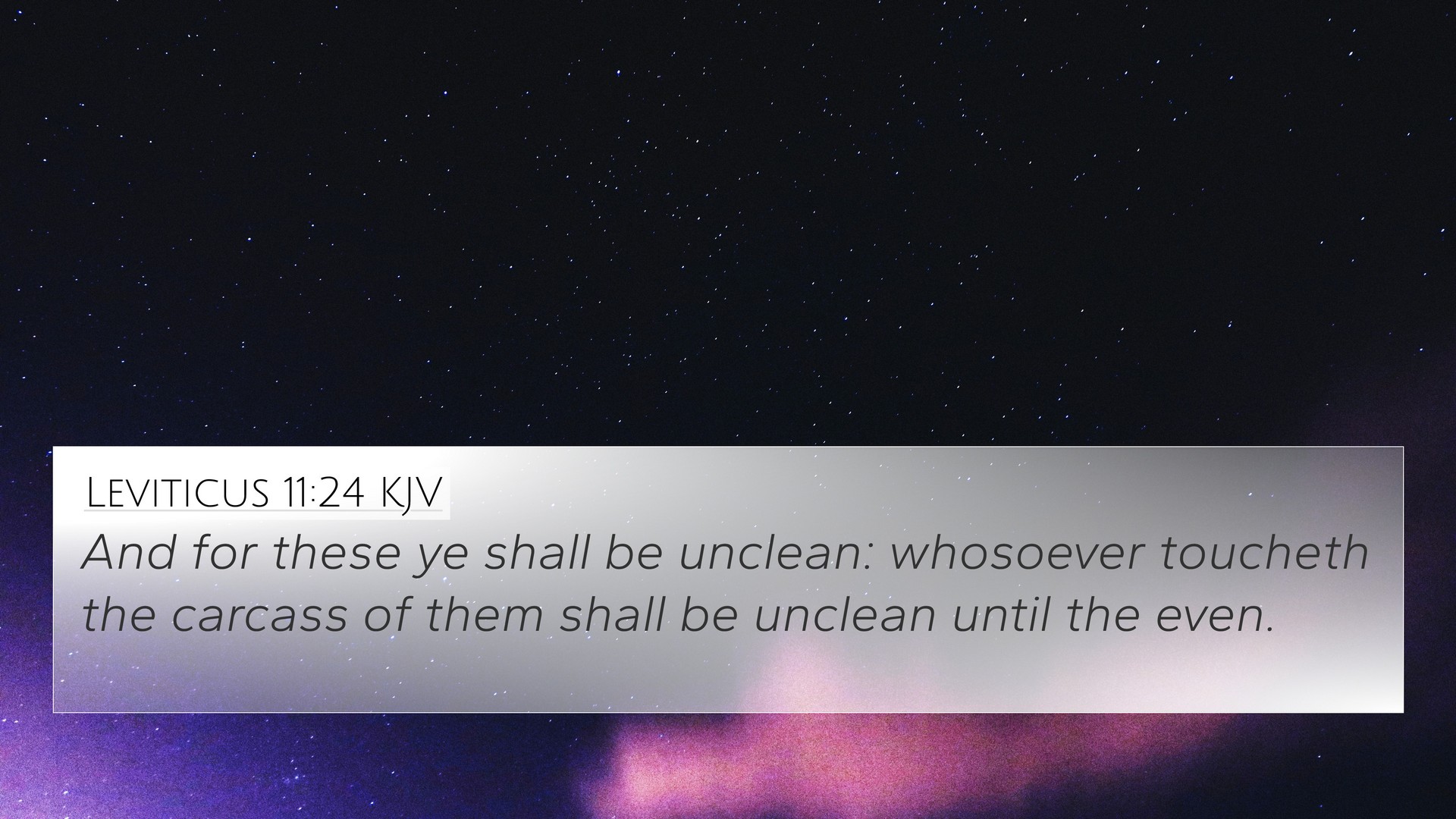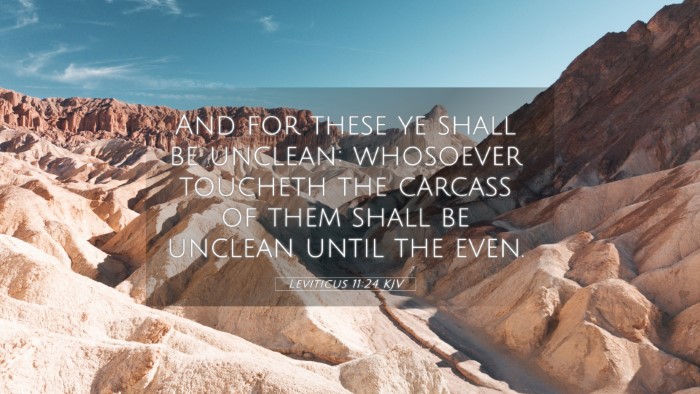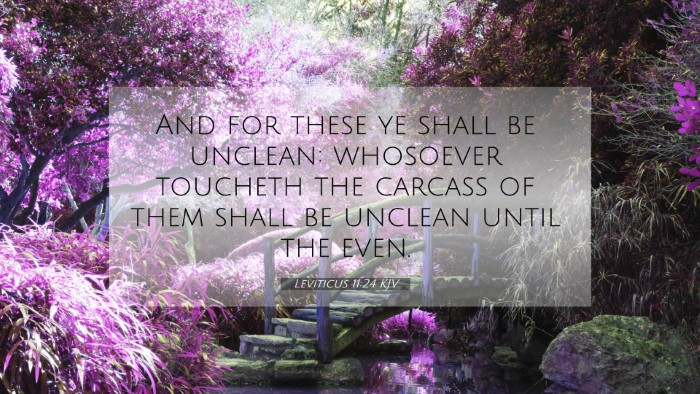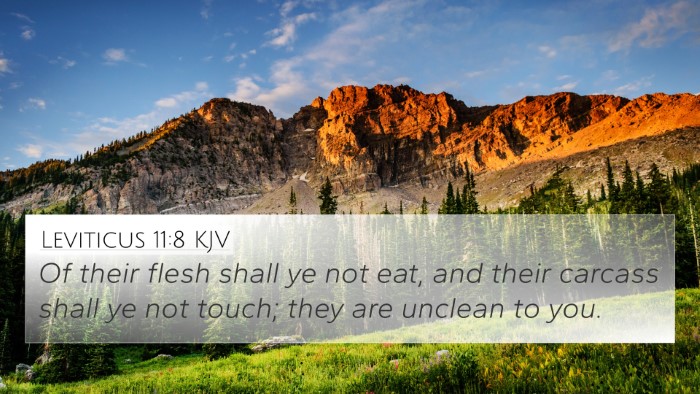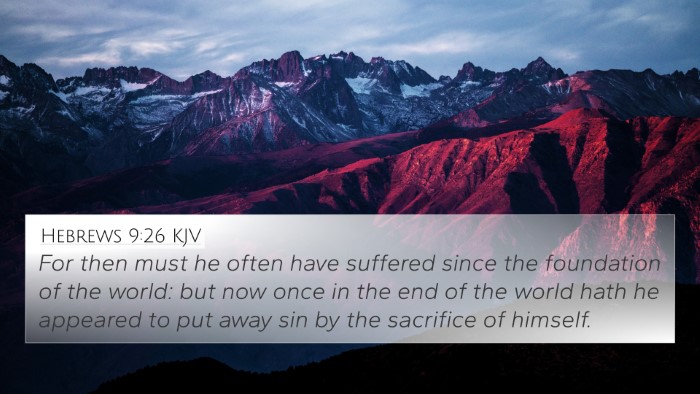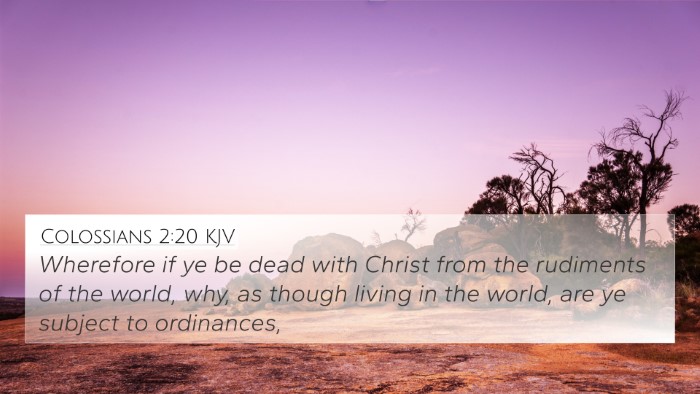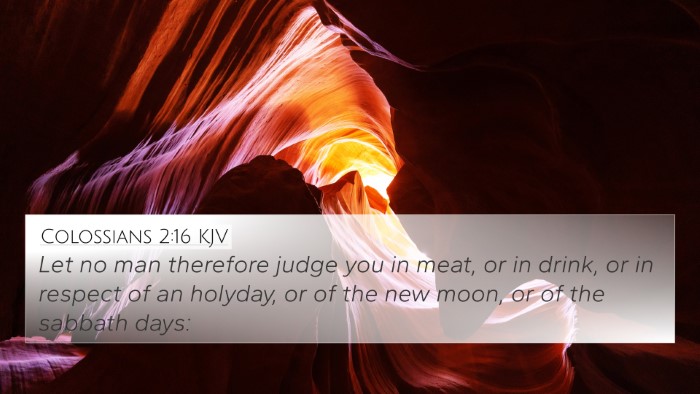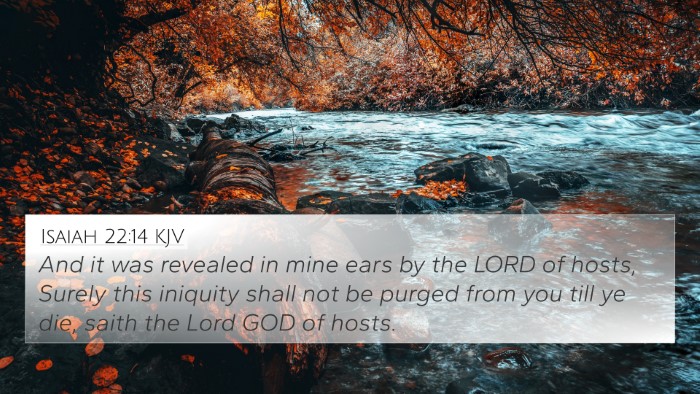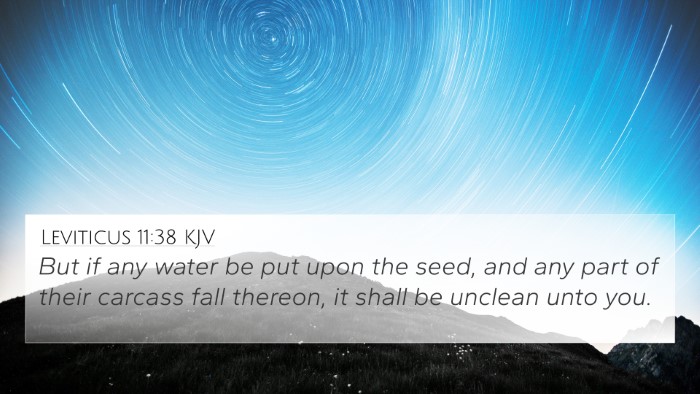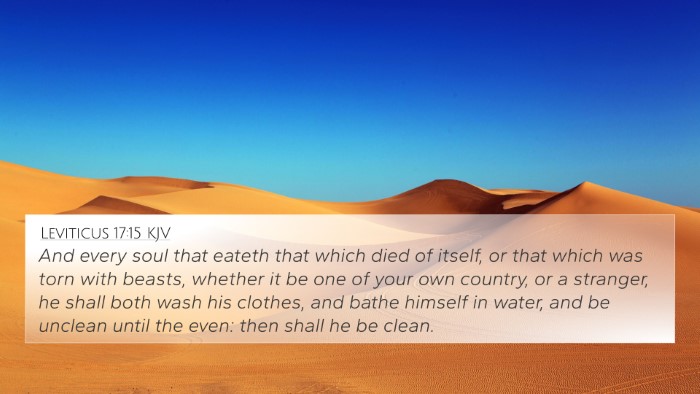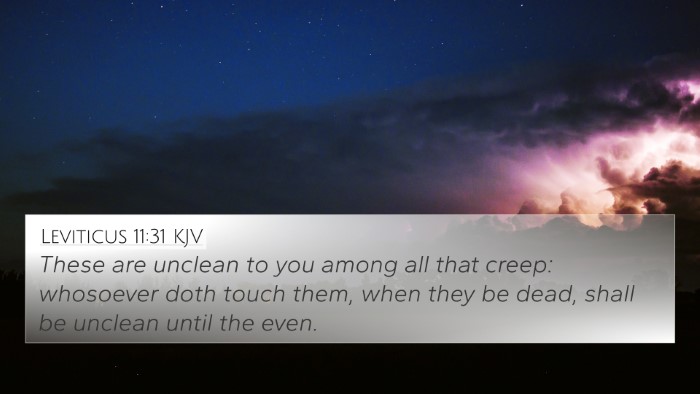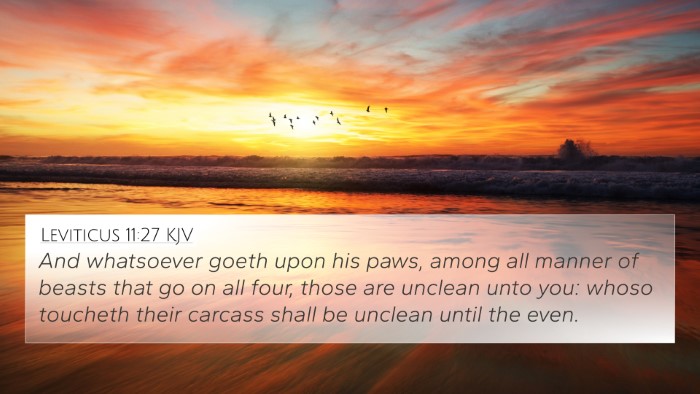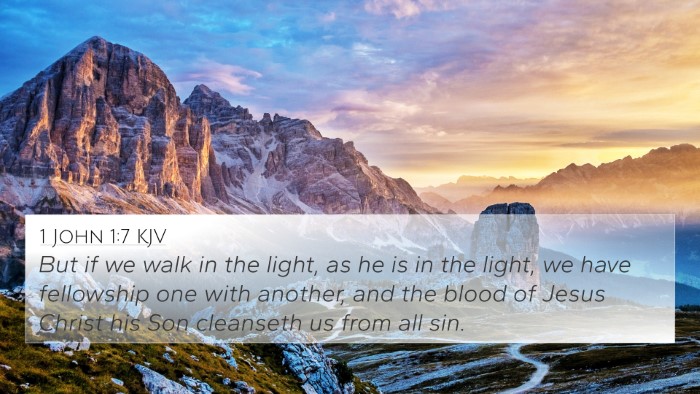Understanding Leviticus 11:24
Verse Reference: Leviticus 11:24 - "And for these you shall be unclean: whoever touches the carcass of them shall be unclean until the evening."
Summary of Meaning
This verse is part of a larger dietary law given to the Israelites concerning clean and unclean animals. It establishes guidelines for ritual purity, specifically focusing on the impact of touching the carcasses of certain animals. The implications of such laws are both physical and spiritual, targeting communal holiness as well as individual purity. Matthew Henry emphasizes that these laws were not just for health benefits, but also served as a symbol of spiritual separation from sin and corruption.
Insights from Public Domain Commentaries
- Matthew Henry: In his commentary, Henry focuses on the significance of being "unclean" and how it relates to a person's standing before God. He notes that the laws provided a way to maintain a distinctive identity for the Israelites and to reflect their separation from other nations.
- Albert Barnes: Barnes explains that these laws were practical, protecting the people from diseases linked to the animals deemed unclean. He points out that cleanliness in ritual was crucial for approaching God, thus serving as a preparation for worship.
- Adam Clarke: Clarke expands on the concept of uncleanness, stating it not only denotes physical contamination but also moral and spiritual implications. He implies that understanding these laws can lead to a broader appreciation of God’s holiness and the necessity of obedience.
Related Bible Cross-References
Leviticus 11:24 connects with various other scriptures that enhance understanding of its themes:
- Leviticus 10:10-11: Discusses the distinction between the holy and the profane, showing the importance of maintaining purity.
- Numbers 19:22: Expands on the idea of uncleanness and its repercussions on community worship.
- Isaiah 52:11: Calls for the people to depart from unclean things as a metaphor for spiritual cleanness.
- Hebrews 12:14: Encourages believers to strive for holiness, underlining its importance in seeing God.
- 1 Peter 1:16: Cites the call to be holy because God is holy, revealing the continuity between the Old and New Testament teachings on purity.
- Mark 7:18-23: Jesus teaches that inner purity matters more than outer adherence to dietary laws.
- Acts 10:14-15: Discusses the vision of Peter regarding clean and unclean animals, illustrating a shift in understanding under the New Covenant.
Thematic Connections
The theme of cleanliness extends throughout Scripture, where physical cleanliness mirrors spiritual integrity:
- Purification: The need for purification rituals reflects the need for cleansing from sin, as seen in Psalms 51:10.
- Holiness: The call to holiness runs through the entirety of Scripture, contextualized differently in both Testaments but remaining pivotal (Leviticus 20:26; 1 Corinthians 1:2).
- Community Practices: The laws affected not only personal choices but also community identity, portraying collective responsibility in maintaining purity.
Tools for Cross-Referencing
When studying biblical texts, tools for cross-referencing can greatly enhance understanding:
- Bible Concordance: A comprehensive tool to find specific scriptures that relate to themes, words, or phrases.
- Bible Cross-Reference Guide: Helps to see connections between different verses and their meanings.
- Cross-Reference Bible Study: Engaging in this type of study can uncover deeper theological insights.
Conclusion
Leviticus 11:24 serves as a crucial juncture for understanding God’s expectations for His people concerning purity and holiness. The connections we find between this verse and others exemplify the intricate design of Scripture, emphasizing the importance of cross-referencing in biblical studies. By exploring these laws through various commentaries, believers are encouraged to view their own lives in light of these divine standards of holiness.
